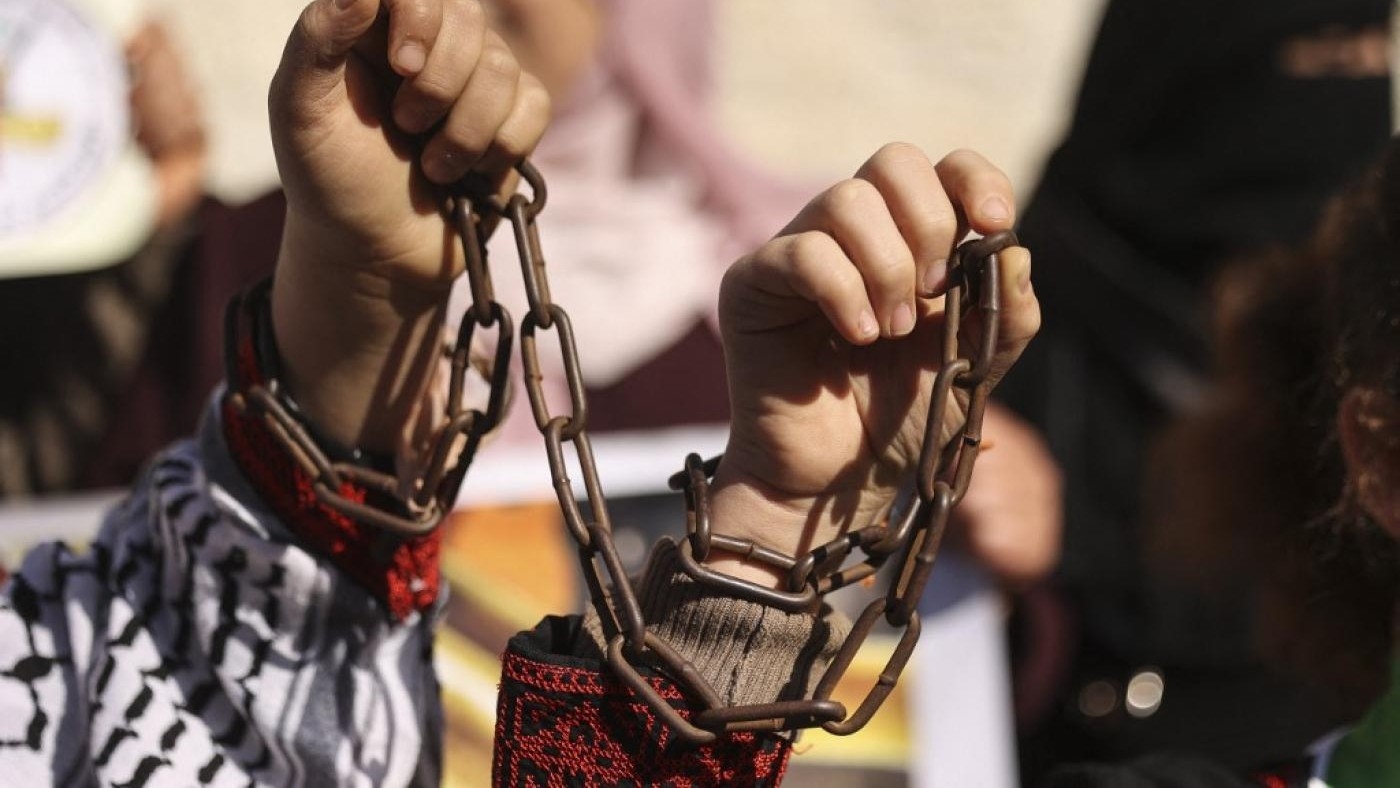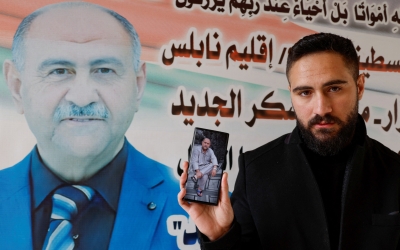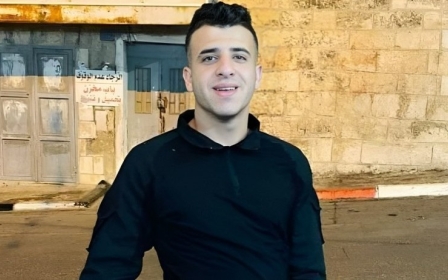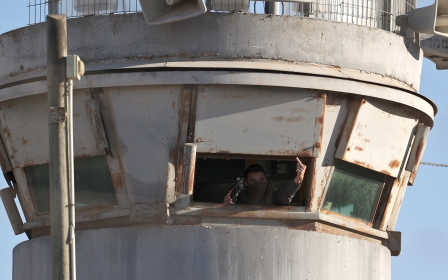Israel introduces bill to limit medical treatment for Palestinian prisoners

Israel's parliament on Thursday passed the first stage of a bill to stop funding non-essential medical treatment for Palestinians in Israeli prisons, in the latest series of punitive measures taken against detainees.
The authors of the bill, which was supported by 42 Knesset members, described Israel's existing prison policy as "unreasonably lenient" towards security prisoners.
It is unclear what the authors of the bill deem as non-essential medical treatment.
"The medical services provided by the government to prisoners should not exceed basic medical care. There is no reason or logic to finance cosmetic treatments at the expense of taxpayers," they were quoted as saying by Israeli broadcaster Kan.
The move aims to "deny prisoners accused of subversive acts against the State of Israel of the right to receive funding for medical treatments intended at improving quality of life and [medicine] not included in the basket of health services".
New MEE newsletter: Jerusalem Dispatch
Sign up to get the latest insights and analysis on Israel-Palestine, alongside Turkey Unpacked and other MEE newsletters
The bill was introduced by the Jewish Power, the party of far-right National Security Minister Itamar Ben-Gvir, and the opposition National Unity Party.
'Slowly killing' prisoners
Zaher Birawi, chairman of the civil society organisation Europal Forum, told Middle East Eye that the legislation is aimed at "slowly killing" Palestinian prisoners.
Such policies have been implemented against Palestinian prisoners for decades, Birawi said, but now "they are taking on legitimacy through the Knesset".
The bill also stipulates that in exceptional cases, the national security minister, in consultation with the defence ministry, may authorise the funding of treatments for special reasons.
Birawi believes that, if passed, the bill would be tantamount to the "legalisation of medical negligence and as a means of punishment or even execution".
In recent months, Ben-Gvir has set his sights on Palestinian prisoners in Israeli jails.
Since joining Prime Minister Benjamin Netanyahu's government late last year, the security minister has vowed to crack down on the treatment of Palestinian prisoners, whom he claims are being treated too well.
Earlier this month, Ben-Gvir ordered the closure of Palestinian prisoner-run bakeries in Israeli prisons and that detainees would only be given four minutes to shower.
The head of the Palestinian Prisoner's Club, Qadura Fares, condemned the latest move as a breach of international laws that guarantee "the right to treatment and health care for prisoners" by the occupying power.
In statement, Fares added that Israel continues to "ignore everything that has been approved by the international system, without any concern, and in light of international silence, the occupation authorities will continue to invent racist legislations and laws".
'Inflaming public opinion'
In toughening the conditions of Palestinian prisoners, such policies are aimed at responding "to a wide public perception that Palestinian prisoners enjoy relatively good treatment in Israeli jails", said Yonatan Touval, an analyst at the Israeli Institute for Regional Foreign Policies (Mitvim).
In response, Palestinian prisoners in jails across Israel have began a series of mass civil disobedience actions to protest against punitive measures.
The actions will culminate in a hunger strike at the start of the Muslim month of Ramadan in late March, prisoners declared last month.
Ben-Gvir's move against Palestinian prisoners also allows him to "claim that he is delivering on his election promise to lead a tougher stance on law and order, especially as he lacks any practical and meaningful policy that would boost security on the ground", Touval told MEE.
Within the first week of the new government's formation in December, Ben-Gvir announced plans to implement several punitive measures against incarcerated Palestinians.
'Any deterioration in the conditions of Palestinian prisoners could inflame public opinion across the West Bank and the Gaza Strip'
- Yonatan Touval, analyst
Approximately 140 Palestinian prisoners have been transferred to Israel's infamous Nafha prison, located in the southeast Negev desert, in recent weeks. The prison is notorious for its terrible living conditions that some prisoners describe as "inhumane".
Touval believes that while Thursday's bill still needs to pass two more stages before becoming law, the cumulative impact of Ben-Gvir's policies bears risks.
"The state of Palestinian security prisoners is an extremely sensitive issue for Palestinians throughout the occupied territories," he said.
Tensions in the West Bank are already at a boiling point, with at least 14 Palestinians killed by Israeli forces this week alone. So far this year, 62 Palestinians and 10 Israelis have been killed.
"Any deterioration in the conditions of Palestinian prisoners could inflame public opinion across the West Bank and the Gaza Strip," said Touval.
"Given the recent escalation in violence on the ground, the additional pressure that the Israeli government is now putting on Palestinian prisoners could prove to be explosive."
Middle East Eye delivers independent and unrivalled coverage and analysis of the Middle East, North Africa and beyond. To learn more about republishing this content and the associated fees, please fill out this form. More about MEE can be found here.





